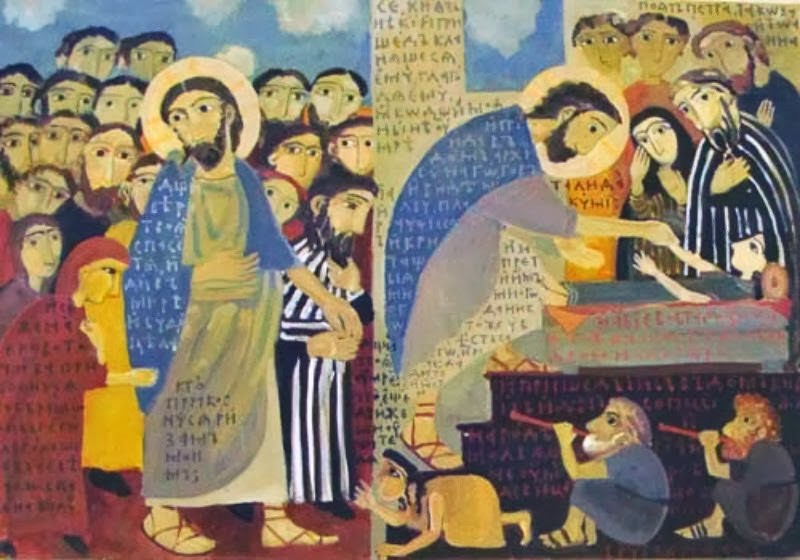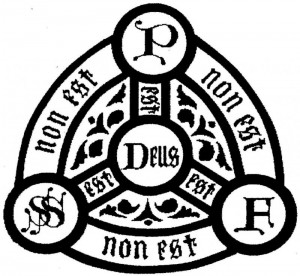 For recreational reading these days, I’m into a novel entitled Winter of the Gods.[1] The premise is that the ancient gods of Greece are still with us, immortal but relatively powerless beings blending into the human world around them. The story is set in current-day New York City where the goddess Artemis, mistress of the hunt and twin sister of Apollo, lives and works as a private detective. As the novel opens, Selene (as Artemis is called) and her partner Theo, a professor of classics at Columbia University, are consulting with the NYPD about a bizarre murder. What they know, and the police don’t, is that the victim is Hades, god of the underworld.
For recreational reading these days, I’m into a novel entitled Winter of the Gods.[1] The premise is that the ancient gods of Greece are still with us, immortal but relatively powerless beings blending into the human world around them. The story is set in current-day New York City where the goddess Artemis, mistress of the hunt and twin sister of Apollo, lives and works as a private detective. As the novel opens, Selene (as Artemis is called) and her partner Theo, a professor of classics at Columbia University, are consulting with the NYPD about a bizarre murder. What they know, and the police don’t, is that the victim is Hades, god of the underworld.
This is the first death of an immortal god in millennia and the rest of the gods are thrown into turmoil. They have to join forces and work together to solve the murder before another one of them killed. This is difficult because if the Greek gods are nothing else they are a dysfunctional family. After all, they are all descended from Kronos, the divine son of Uranus, the sky, and Gaia, the earth. Kronos overthrew his parents and ruled during the mythological Golden Age. He married his sister Rhea and fathered several children, but prevented strife by eating then as soon as they were born. Eventually, Rhea grew tired of this and tricked Kronos into not devouring Zeus, who overthrew Kronos and cut open his father’s belly and freed his brothers and sisters.[2]
As a theologian and a preacher, I am very glad I don’t have that mythology to deal with on a weekly basis! Finding something good to preach based on the stories of that dysfunctional family would be a task I don’t think I’m up to.
Continue reading
![]() In today’s gospel lesson from the sixth chapter of Mark, Jesus has come home to Nazareth immediately after last week’s two stories of healing. Apparently he is there for at least a few days and when the Sabbath comes he does as he has done elsewhere: he goes to the synagogue. In Luke’s version of this story, Jesus is given a scroll from the prophet Isaiah and reads from it:
In today’s gospel lesson from the sixth chapter of Mark, Jesus has come home to Nazareth immediately after last week’s two stories of healing. Apparently he is there for at least a few days and when the Sabbath comes he does as he has done elsewhere: he goes to the synagogue. In Luke’s version of this story, Jesus is given a scroll from the prophet Isaiah and reads from it: It had gone on so long she couldn’t remember a time that wasn’t like this. She lived in constant fear. She wasn’t just cranky and out-of-sorts; she was terrified. Her life wasn’t just messy and disordered; it was perilous, precarious, seriously even savagely so. It was physically and spiritually draining, like being whipped every day.
It had gone on so long she couldn’t remember a time that wasn’t like this. She lived in constant fear. She wasn’t just cranky and out-of-sorts; she was terrified. Her life wasn’t just messy and disordered; it was perilous, precarious, seriously even savagely so. It was physically and spiritually draining, like being whipped every day. Our Old Testament lesson this morning is a very small bit of the Book of Job, that really sort odd bit of Biblical literature that tells the story of a wager between God and Satan. Some scholars believe that it may find its origins in an earlier Babylonian work known as the Poem of the Righteous Sufferer, that the Jews in Exile became familiar with the older Babylonian story and adapted it to their own theology.
Our Old Testament lesson this morning is a very small bit of the Book of Job, that really sort odd bit of Biblical literature that tells the story of a wager between God and Satan. Some scholars believe that it may find its origins in an earlier Babylonian work known as the Poem of the Righteous Sufferer, that the Jews in Exile became familiar with the older Babylonian story and adapted it to their own theology. Our kids this week have been “Shipwrecked,” but they’ve also been “rescued by Jesus.”
Our kids this week have been “Shipwrecked,” but they’ve also been “rescued by Jesus.” For recreational reading these days, I’m into a novel entitled Winter of the Gods.
For recreational reading these days, I’m into a novel entitled Winter of the Gods. The theme for today’s lessons is clear . . . we are almost “hit upside head” with the concept of Sabbath. Our reading from Deuteronomy is the law establishing the mandatory day of rest:
The theme for today’s lessons is clear . . . we are almost “hit upside head” with the concept of Sabbath. Our reading from Deuteronomy is the law establishing the mandatory day of rest: Some of you may have heard of Brooks’s law, which has to do with the time it takes to complete a software project. It’s similar to the general law of diminishing returns in economics. Professor Fred Brooks of the University of North Carolina first proposed the law in 1975; it holds that “adding manpower to a late software project makes it later.”
Some of you may have heard of Brooks’s law, which has to do with the time it takes to complete a software project. It’s similar to the general law of diminishing returns in economics. Professor Fred Brooks of the University of North Carolina first proposed the law in 1975; it holds that “adding manpower to a late software project makes it later.” What do you suppose it was like in Jerusalem on that Pentecost morning so long ago?
What do you suppose it was like in Jerusalem on that Pentecost morning so long ago? Our gospel lesson today is from John’s story of the last supper. This is part of a long after-dinner speech that Jesus gives including a section known as the “high priestly prayer.” In it, among other petitions, Jesus asks God the Father to look after his disciples. He prays:
Our gospel lesson today is from John’s story of the last supper. This is part of a long after-dinner speech that Jesus gives including a section known as the “high priestly prayer.” In it, among other petitions, Jesus asks God the Father to look after his disciples. He prays: Today we are welcoming Reed C_____ F_____ into the Household of God through the Sacrament of Holy Baptism. We are also commemorating Dame Julian of Norwich, one of the medieval saints of English Christianity. Twenty-eight years ago I was ordained a deacon on Julian’s feast day which is actually on Tuesday, May 8. So the lessons we heard this morning, and the second of the two collect I offered after the Gloria in Excelsis, were from the propers for Dame Julian’s celebration. But I would like to read you also the brief Gospel lesson appointed for the Sixth Sunday of Easter, which is also from John’s Gospel
Today we are welcoming Reed C_____ F_____ into the Household of God through the Sacrament of Holy Baptism. We are also commemorating Dame Julian of Norwich, one of the medieval saints of English Christianity. Twenty-eight years ago I was ordained a deacon on Julian’s feast day which is actually on Tuesday, May 8. So the lessons we heard this morning, and the second of the two collect I offered after the Gloria in Excelsis, were from the propers for Dame Julian’s celebration. But I would like to read you also the brief Gospel lesson appointed for the Sixth Sunday of Easter, which is also from John’s Gospel

